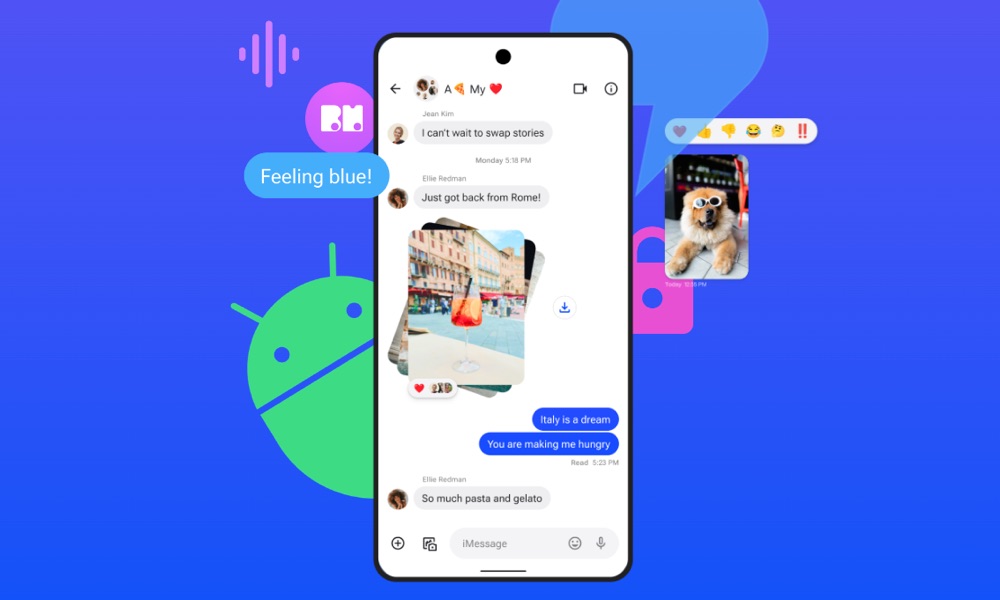Beeper Mini Throws in the Towel

Toggle Dark Mode
Beeper appears to have officially given up on the cat-and-mouse game it’s been engaged in with Apple to try and provide a seamless iMessage solution for Android users following a final death blow by Apple earlier this month.
Although Beeper’s multi-platform message service has been around for a few years, it raised the ire of Apple when it found a loophole last fall that allowed it to register Android devices as clients with Apple’s iMessage servers. From this discovery, a new app, Beeper Mini, was born.
Technically speaking, Beeper reverse-engineered the iMessage protocol, figuring out how an iPhone legitimately connects to Apple’s servers and then applying that same technique to allow Android devices to get on board by pretending to be iPhones.
In its original form, Beeper Mini worked brilliantly well, allowing an Android device’s phone number to be registered as an iMessage address and letting Android users participate as full “blue-bubble” participants in iMessage conversations.
As clever as it was, Apple was decidedly not impressed with Beeper’s stunt. It took less than three days for Apple to pull the plug and block these phone number registrations from its servers. After all, it probably wasn’t too hard for Apple to figure out that the devices registering with its servers weren’t actually iPhones.
Nevertheless, Beeper Mini continued to function by having users switch over to using Apple IDs and communicating with an email address instead of a phone number. That was a bit more fiddly and less seamless, but it got the job done, and Android users could keep chatting away with their iPhone counterparts for another few days before Apple got wise to the new technique and blocked that, too.
As a result, Beeper was forced to switch back to a method similar to what it debuted three years ago, relying on a Mac to act as an intermediary of sorts. However, unlike the original Beeper, which used the Mac (or a jailbroken iPhone ) as a relay, Beeper figured out a way to “clone” the registration information from a Mac.
This allowed Beeper Mini to continue connecting directly to Apple’s iMessage servers rather than relying on the Mac to exchange messages on its behalf. Beeper Mini basically reused the registration token created by a legitimate connection from a Mac to Apple’s iMessage services. Since Messages for macOS is an authorized iMessage client made by Apple, presumably, Apple wouldn’t detect it as invalid and block it.
Or so Beeper thought.
It turns out that Apple figured out what was going on and, in something of a “scorched earth” approach, began blocking Macs that were being used as proxies for Beeper Mini.
It’s not entirely clear how Apple was doing this, but it doesn’t appear to have specifically been a punitive move. The Apple IDs used on those Macs weren’t blocked from iMessage, as it continued to work fine on the iPhone and iPad and even on other Macs that didn’t have the Beeper app installed. Since every device that accesses iMessage gets a unique registration token, Apple was likely detecting the same token being used by more than one device and blocking it entirely. The Macs were merely collateral damage in this case.
While the problem doesn’t appear to have affected every Beeper Mini user, the company has clearly decided this is no longer a battle worth fighting. Today, the company announced that it’s removing the Beeper Mini app from the Google Play Store and will no longer provide support or troubleshooting.
Instead, the company is moving to its “mission beyond iMessage” — to build “a universal, multi-network chat app.” Folks successfully using Beeper Mini can continue to do so, but when and if it stops or if they have any other problems, they’ll be on their own.
If iMessage currently works for you in Beeper Cloud today, that’s great! But please be aware that we no longer provide support or troubleshooting for any iMessage-related issues. If it doesn’t work, we’re truly sorry – at this time we’ve done what we can (especially given that Beeper is a free app).
Beeper
Beeper also added that it’s open-sourced its iMessage bridge “for those who would like to continue the fight” and says it may even revisit the project in the future. Ultimately, it hopes that Apple will be “forced to see the light” by regulators, but that’s a grey area at best since iMessage is hardly the only messaging platform available on the iPhone, and it’s not even the most popular one, at least outside of the US. It’s far more likely that Apple’s implementation of RCS later this year will appease antitrust concerns by providing equal footing for a more modern open standard.






